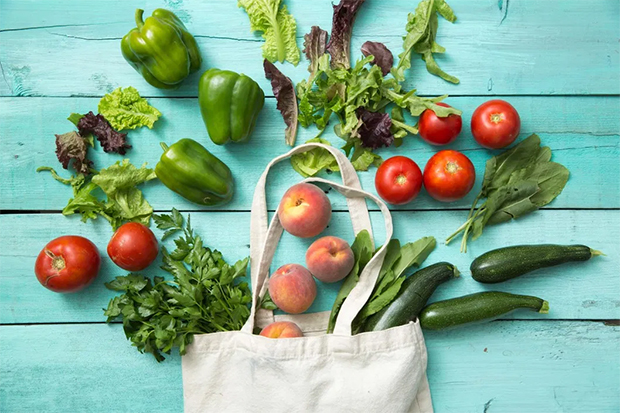10 Things You Can Do with Food Scraps to Reduce Food Waste!

1. Compost

Composting is a great way to put your food scraps to good use! The process utilizes these scraps and other organic materials to form a natural fertilizer that is then used to enrich soil. It reduces the amount of waste in landfills and also decreases the amount of methane emitted into the atmosphere. There are over 40 compost bins on campus, so you can keep them in a container or bag and drop them off! Here are some things you can keep in your compost bucket:
- Produce
- Grains
- Coffee grounds
- Paper towels/napkins
- Compostable paper atmosphere
Make sure NOT to put these things in there:
- Meats
- Dairy
- Liquids
- Food wrappers
- Plastic cutlery (or any other plastic items)
Some compost bin locations include the Law Library, Creswell Hall, the Journalism Building, and the Plant Sciences Building. Now, let’s get composting!
2. Make DIY Beauty Products

Another way to utilize food scraps is to morph them into a beauty product! If you do not use all the juice from a lemon or simply use the zest, you can take the leftover part of the lemon and rub the inside all around your fingernails. The acid from the juice can brighten your nails after rubbing for just a few minutes. Make sure to rinse your nails with warm water after.
Another beauty product you can make is a natural exfoliant using fine coffee grounds or sugar. You can add any flavor/scent extract, and apply it to your face once a week!
3. Make More Food

You can also use your food leftovers to make more food! Here are some ideas:
- Bake leftover bread crusts to make croutons that are perfect for soups, salads, or crumbs on top of a casserole
- Use apple peels and core, strawberry tops, and apricot peels to make a jam. It only takes a few ingredients and will give a natural fruity taste
- Combine leftover carrot peels, potato skins, or celery tops into a broth or liquid to make flavored stock or soup
4. Add to Plant Soil

Your plants will LOVE you after you feed them nutrients from banana peels. Simply place the peel in a bucker/jar of water, let it sit overnight, and use that water to water your plants. Bananas and their peels are very potassium- and phosphorus-rich, so the nutrients will leak out and give your water a rich additive!
5. Utilize the Aromas of Fruit for the Home

You can also utilize the aromas of fruit for a better-smelling home. Tossing citrus peels down the garbage disposal is a key trick to get rid of that disposal smell. Another way to utilize the peels of fruits is to let it boil in a little bit of water. It will create a natural home air freshener.
6. Make Infusions

Zests or peels of oranges, lemons, grapefruits, limes, or tangerines are perfect ingredients to infuse many foods. You can infuse olive oil, water, and more to create a more flavorful recipe!
7. Regrow Veggies

The seeds, pits, and cuttings of lettuce, ginger, avocado, celery, green onions, and more can even be regrown! Planting them in soil, watering them appropriately, and making sure it gets plenty of sunlight will give you more veggies for the price of one!
8. Use the Very Last of Everything in a Jar

When you have a nearly empty peanut butter jar, jam jar, or another others jar/container, use that as the item you cook other recipes in! You can make overnight oats in a peanut butter jar that will give you every last bit of product in the jar. Another idea is adding a scrambled egg and veggies to a salsa jar and cook it that way. The spice all around the jar will provide a rich, flavorful product!
9. Ravamp Current Food

The end of the bread should not be thrown out anymore! You can revamp your current food items – a popular trick is adding the end to your brown sugar container. This will soften the sugar and prevent it from turning solid.
10. Go Crazy with Herb Leftovers or Ends

Finally, you can use EVERY part of any herb. Adding herbs to ice trays with olive oil is a great substitute for oil or butter for a recipe and provides flavor. The ends or stems of other herbs and be dried and made into spice blends, since they still have flavor.
Written by: Libby Siegel, dietetics practicum student, UHC Health Promotion
For students in need of additional support resources:
The UGA food pantry is fully stocked and available for students in town. Students should call Student Care and Outreach to set up a time for pick-up (706.542.7774) or contact them via email at SCO@uga.edu with any questions. Information about emergency funding and Graduate Student emergency funding can be found here: Student Affairs emergency fund and Graduate Student emergency fund. Bulldog Basics is also still running for students in town. Students can request basic hygiene items here.


